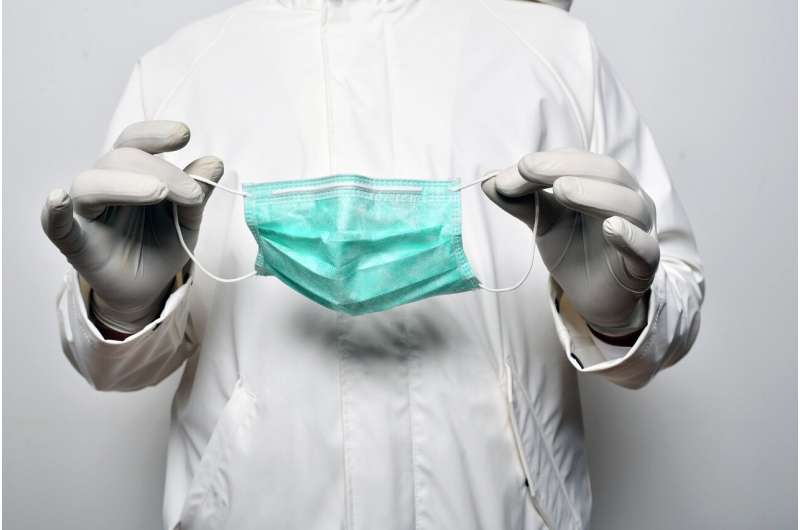Countries with early adoption of face masks showed modest COVID-19 infection rates

Regions with an early interest in face masks had milder COVID-19 epidemics, according to a new letter-to-the-editor published in the American Journal of Respiratory and Critical Care Medicine.
In "COVID-19 and Public Interest in Face Mask Use," researchers from the Chinese University of Hong Kong shared findings from their analysis of how public interest in face masks may have affected the severity of COVID-19 epidemics and potentially contained the outbreak in 42 countries in 6 continents.
The authors noted that "In many Asian countries like China and Japan, the use of face masks in this pandemic is ubiquitous and is considered as a hygiene etiquette, whereas in many western countries, its use in the public is less common."
There was a clear negative correlation between the awareness or general acceptance of wearing a face mask and its infection rates. "One classic example is seen in Hong Kong," said Sunny Wong, MD, associate professor, Department of Medicine and Therapeutics, The Chinese University of Hong Kong.
"Despite [Hong Kong's] proximity to mainland China, its infection rate of COVID-19 is generally modest with only 1,110 cases to-date. This correlates with an almost ubiquitous use of face masks in the city (up to 98.8 percent by respondents in a survey). Similar patterns are seen in other Asian areas, such as Taiwan, Thailand and Malaysia. To date, there are more than two million cases in the U.S. and more than one million cases in Brazil.
While, the authors acknowledge that face masks are seen as important in slowing the rise of COVID-19 infections, it is difficult to assess whether it is more effective than handwashing or social distancing alone.
As cities in the U.S. and elsewhere put re-opening plans into effect, Dr. Wong said the use of face masks should be encouraged: "Face masks can help slow the spread of COVID-19, and have a relatively low cost compared to the health resources and death toll associated with the pandemic".
He added, "We believe that face mask use, hand washing and social distancing are all important components of the non-pharmaceutical measures against COVID-19."
More information: Sunny H Wong et al, COVID-19 and Public Interest in Face Mask Use, American Journal of Respiratory and Critical Care Medicine (2020). DOI: 10.1164/rccm.202004-1188LE


















